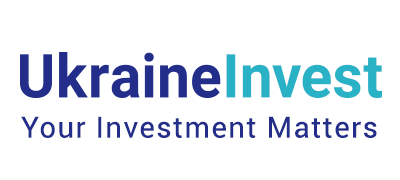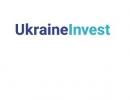UKRAINEINVEST ISSUES THE BUSINESS WEEK, A FREE ON-LINE PUBLICATION CONTAINING A WEEKLY SUMMARY OF IMPORTANT BUSINESS NEWS IN UKRAINE, FOR 19 MARCH, 2018.

Austria’s President and 40 business leaders reaffirm their confidence in Ukraine
Austria’s President Alexander Van der Bellen said his compatriots’ interest in investing in Ukraine became clear to him when 40 business leaders signed up on short notice to join his visit here. He attributed this interest to news percolating west that Ukraine’s reforms are taking hold and the economy is growing again. Austria is the sixth largest foreign investor nation in Ukraine, accounting for $1.3 billion in investment. The President said: «Austria is one of the largest current investors in Ukraine. Austrian investors in Ukraine have created more than 30 thousand jobs.» The delegation was headed by Richard Schenz, vice president of Austria’s Federal Economic Chamber. Austria’s imports from Ukraine grew by 35%, to EUR 607 million, through November last year. In Ukraine, major Austrian companies include: Raiffeisen Bank Aval, insurance companies Vienna Insurance Group, UNIQA, GRAWE; ski manufacturers Fischer and Blizzard; and producers of Agrana fruit concentrates and MarzekEtiketten labels Shops here sell jewellery Frey Wille and crystal products Swarovski.
Agriculture
- Exports of raspberries and blackberries increased by 72% last year to 1,238 tons, reports the Ministry of Agrarian Policy and Food. Despite the big jump, revenues increased by only 15%, to $940,000. Almost all of the berries went to Ukraine’s neighbors: Poland (78%), Belarus (19%), and Romania (3%).
- Poultry exports were up 40% in January-February, 44,450 tons, compared to the same period last year, the State Fiscal Service reports. For this volume, export earnings increased by 1.6 times, to $69 million.
- MHP, Ukraine’s leading poultry producer, is in talks to acquire French poultry firm Doux, which became unprofitable five year ago, after the EU cut export subsidies. Doux is losing out in competition with cheaper Brazilian chicken in key Middle Eastern markets, Reuters reports. Press reports in Paris say the Ukrainian offer involves half of the 1,200 French workers losing their jobs.
- EpicenterAgro is investing $80 million this year in renewing farm machinery and in reconstructing and expanding its grain elevators. A subsidiary of Epicenter K, the construction hypermarket company, EpicenterAgro was formed in 2015. It farms winter wheat, sunflower, corn, and winter rapeseed on 110,000 hectares in Cherkasy, Khmelnitskiy, Kyiv and Ternopil regions. PyotrMikhailishin, Epicenter K general director, told reporters Tuesday: “The plan for this year is for the purchase of $170 million in imported goods. Last year, we exported $50 million in agricultural goods. There is a gap. We have to increase exports three times to hedge our financial risks.”
Anti-corruption
- Poroshenko says he hopes the anti-corruption law will satisfy IMF and EU demands. After a first version was approved March 1, the Rada is working on a version for the second reading. A Western-approved law is essential to Ukraine winning $2 billion in financing from the IMF, the World Bank and the EU.
Automotive
- Ukrainians soon will be able to import diesel cars from Germany at a steep discount, predicts NoviniZakarpattia, a news site edited in Uzhgorod, Ukraine’s only car making city. The site calculates that 12.3 million diesel cars – 82% of all the diesel cars on the road in Germany today – will be illegal under strict new anti-pollution rules that come into effect by Jan. 1, 2020. In February, Ukraine’s imports of used cars equaled those of new cars. This comes after tariffs were lowered and paperwork was simplified to import cars.
- Bolloré Group of France has signed a contract with Ukraine’s Bogdan Corporation to build bus bodies for Bolloré’s Bluebus line. The Cherkasy-based company posted on its website: «This contract is the Bogdan breakthrough in the Western European market. We have already cooperated with Eastern European countries, in particular Poland and the CzechRepublic.” Bogdan did not say if it would build the bus bodies in its plant in Cherkasy, on the Dnipro River, or at its plant in Lutsk, on the Polish border.
- Car production in Ukraine almost doubled in the first two months of this year, hitting 1,085 cars. The entire 94% increase over the same period last year was registered at the Eurocar plant in Uzhgorod, which makes Skoda brand cars. Zaporozhye Automobile Plant, or ZAZ, did not produce any cars in January-February.
Aviation
- Saudi Arabia and Ukraine plan to start assembling light, multi-purpose versions of the An-132 cargo plane at a new technopark near Taif city, western Saudi Arabia. This technopark will include: an airplane factory with an airfield, an enterprise for manufacturing solar panels, and a solar power station. Construction of the Antonov-Taqnia plant is to take place next year and production is to start in 2021. After Antonov president Alexander Krivokon visited Saudi Arabia last week, the Kyiv-based company estimates Saudi demand will be 80 planes and Middle Eastern demand another 200. The An-132 includes engines from Pratt & Whitney Canada, avionics from CMC Electronics and Honeywell, and propellers from Britain’s Dowty.
Banking & Finance
- In Washington, IMF spokesman Jerry Rice repeated at his regular Thursday briefing the tasks Ukraine needs to complete to restart IMF lending, notably an independent anti-corruption court and market prices for household gas.
- Joining a flow of capital back to frontline areas, the EBRD is studying projects in Mariupol, the economic capital of government-controlled Donetsk region. After helping finance TeraWatt Group, a local company making command and control systems for industrial plants, the EBRD is studying supporting a modern trolleybus network for this port city of 600,000. It would feature buses with low floors, Wifi access, and GPS tracking. Fresh from a visit to Mariupol, EBRD regional director Francis Malige reports a major economic boost: Shakhtar Donetsk football team is returning from Lviv to its home region, establishing its base this spring at Mariupol’s Volodymyr Boiko Stadium.
Business
- Ukraine’s IT professional workforce will more than double, to 242,000, by 2025, estimates the Innovation Forum Lithuania-Ukraine. From 2011 to 2016, the number of IT professionals jumped from 48,000 to 116,000.
- In a big bet on e-commerce, Nova Poshta, the privately owned package delivery company, is opening 1,000 new offices this year, a nearly 40% expansion, Viacheslav Klimov, company founder, tells reporters. Klimov spoke at the opening of a $18.5 million, 15,000 square meter sorting center near Zhuliany Airport in Kyiv. Sorting equipment installed by Vanderlande, a Dutch materials handling company, can sort 350,000 parcels a day. The core is a bar code scanner that can read 8,500 bar codes an hour. Serving the right bank of Kyiv and Kyiv region, the center will employ 750 workers, working in four shifts.
- After the loss of Crimea in 2014, Ukraine’s wine production is reviving with dry wines, AFP reports. Since 2014, production of dry wines has grown by 7 to 9% a year, and exports of non-sparkling wines have tripled, hitting 332,000 decaliters in 2017, according to Ukraine’s Association of Winegrowers and Winemakers. Much of the production is in Zakarpattia, which now holds nine wine festivals every summer, drawing 150,000 tourists, many from neighboring Hungary and Slovakia.
Commodities
- Ukraine wants to have its steel exempted from the new U.S. 25% tariff on steel imports. «We believe that Ukrainian products, for which the US market is traditional, are not a threat to US national security,» Ukraine’s trade representative Natalia Mikolskaya writes on Facebook. “We are in constant dialogue with the US government and in contact with Ukrainian producers on this issue.» At present, exemptions only apply to U.S’s two NAFTA trading partners, Mexico and Canada.
- Washington’s new 25% duty on steel imports will effect only 13% of Ukraine’s high value metal exports to the U.S., Alexander Kalenkov, president of the national metal association, Ukrmetallurgprom, tells Interfax. The new tariff will not affect Ukraine’s exports of cast iron, which account for 87% of exports by tonnage to the U.S. However, he said, the new U.S. tariff will ripple through the world steel market, forcing Turkey and the EU to consume more of their steel at home, potentially blocking imports from Ukraine. Ferrous metals accounted for 20% of Ukraine’s exports last year, an export that increased 20% over 2016.


